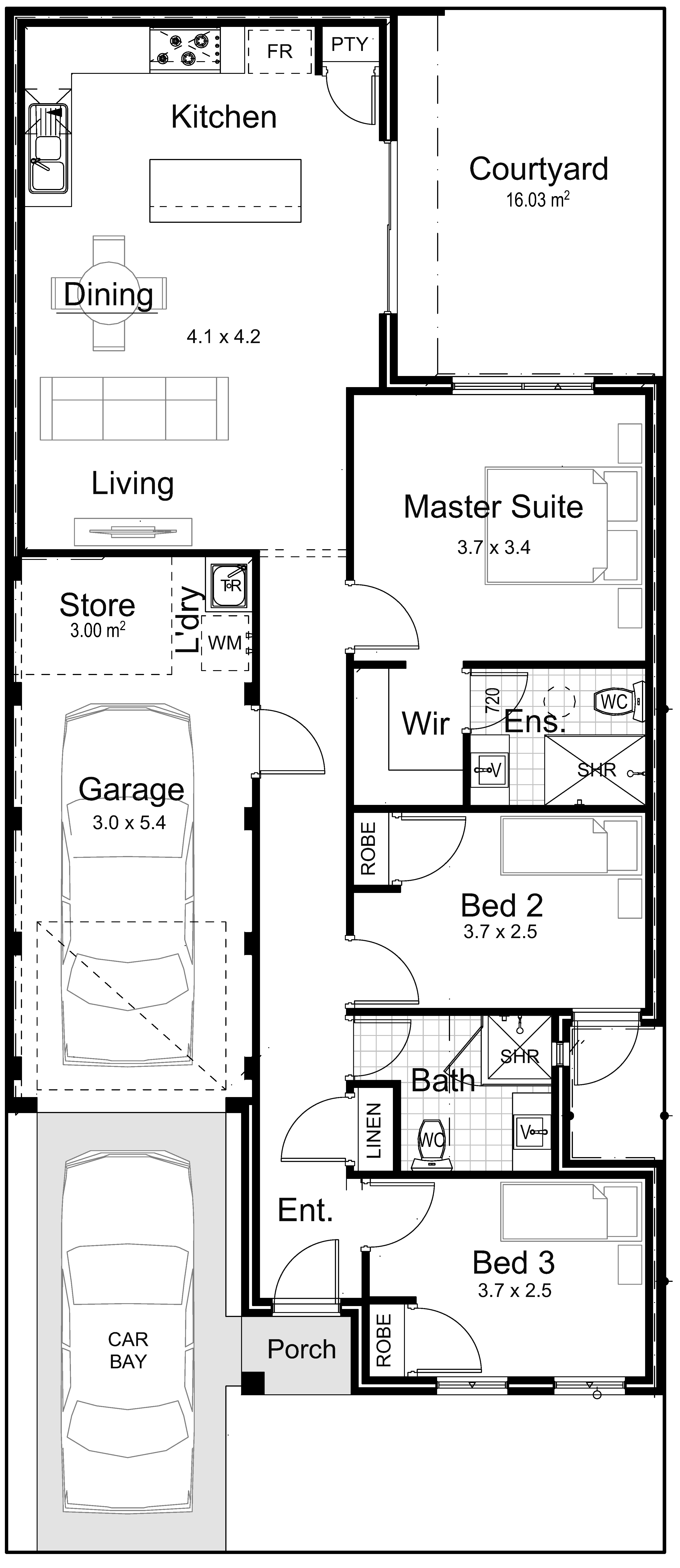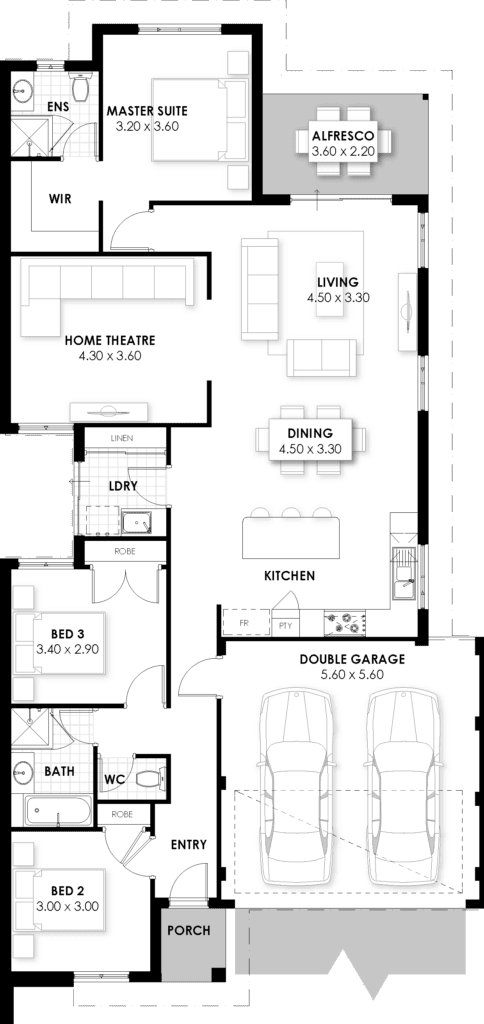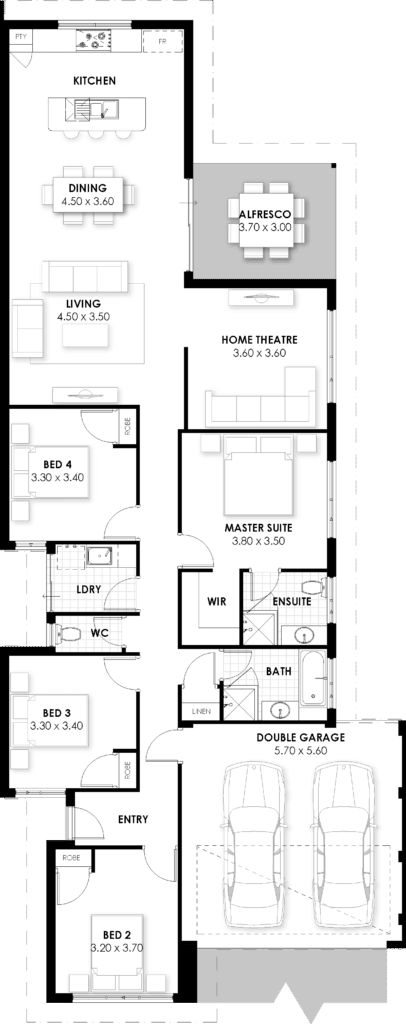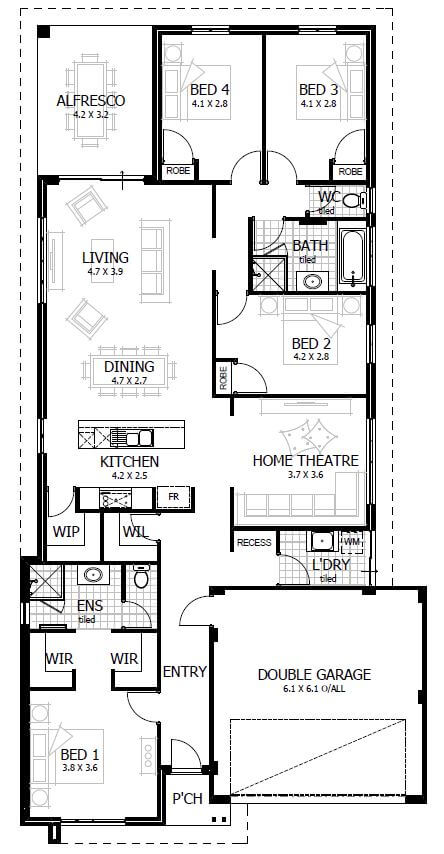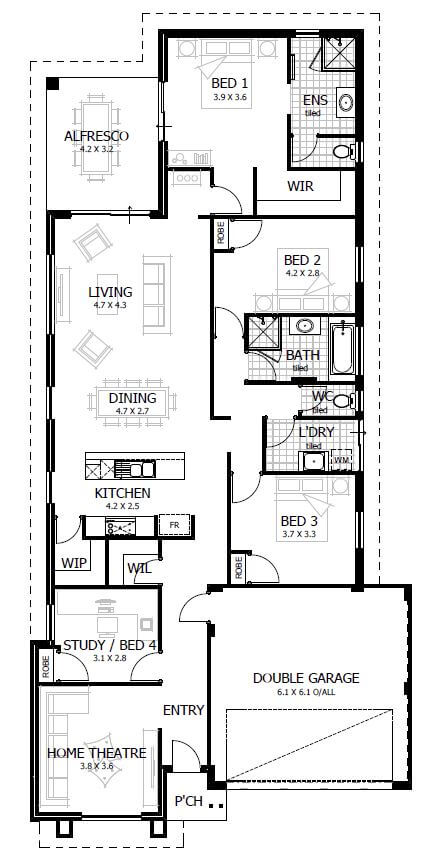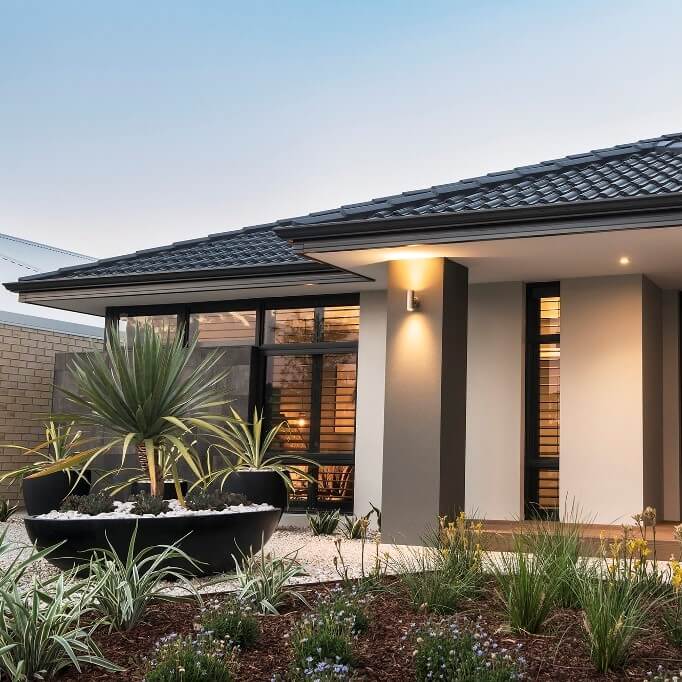

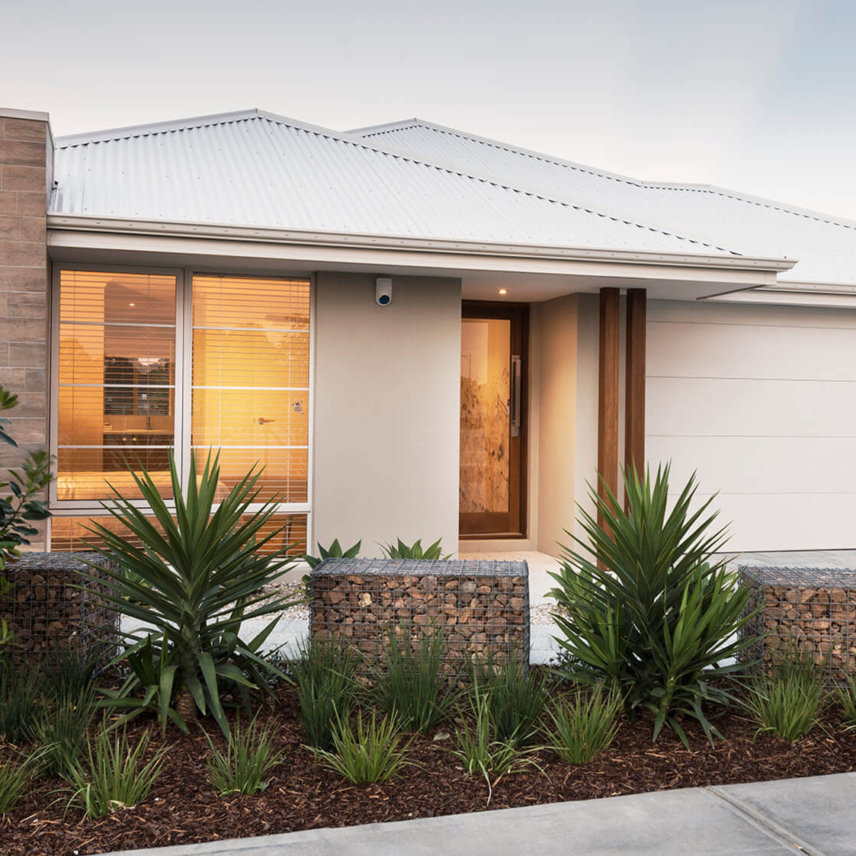

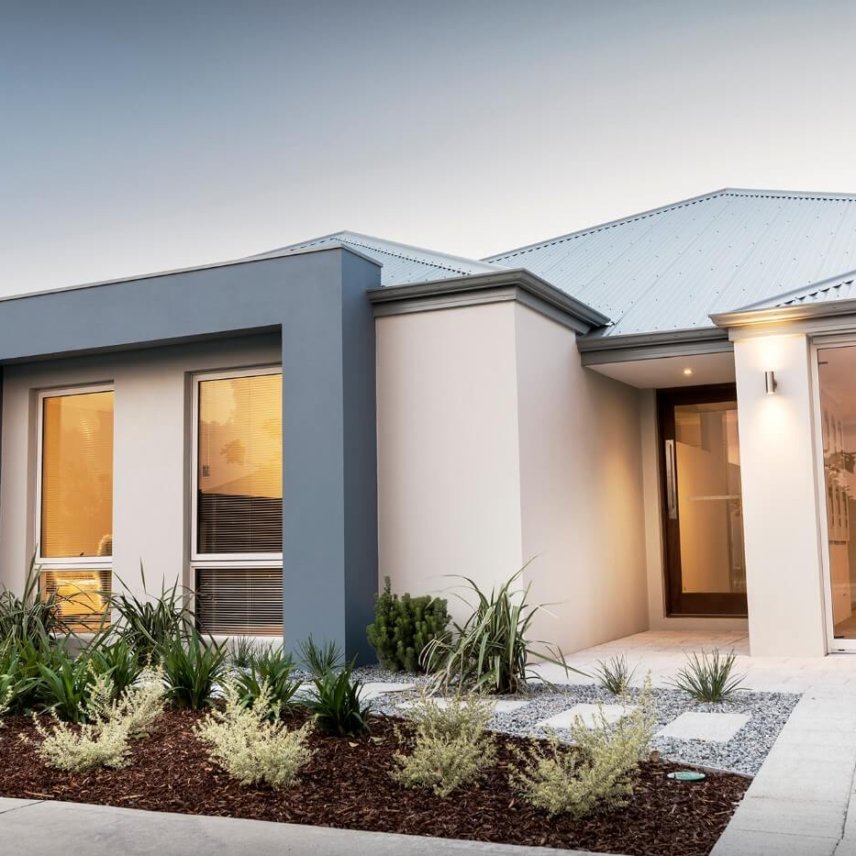

A big choice you’ll face when building your new home is what type of roofing you would like on your home. There’s the traditional concrete roof tiles or a Colorbond corrugated metal roofing.
There is no right or wrong answer, and comes down purely to personal preference. However, it’s important to understand the qualities of both materials to make an informed decision for your particular home. So, we’ve put together some pros and cons for the two choices to help with your decision making.
What’s the main difference?
Concrete roof tiles are, as the name suggests, concrete tiles. They are made up of a mixture of sand, concrete and water, which are molded under heat and high pressure. Concrete tiles have additional water locks, or interlocking ribs on the edges that prevent water infiltration.
Colorbond is a coated steel roofing material manufactured by BlueScope steel. This hard-wearing material is extremely long lasting, able to easily shed rain and withstand high winds.
Colorbond
The pros
- Longevity: They can last up to 70 years.
- Durability: Colorbond can withstand nearly any type of weather condition including rain, wind, snow, hail, and heat (enough to withstand 30 minutes of flame immersion). Colorbond also undergoes constant testing for corrosion, durability, application and outdoor exposure.
- Easy to maintain: There’s a 25-year warranty, as well as a flaking and chipping warranty of 12 years. In this time, you won’t need any maintenance at all, aside from the removal of any heavy dirt or grime which can be done with a hose and soap solution.
- Energy-efficient: Every colour (except Night Sky) in their standard steel range features Thermatech solar reflectance technology. This reflects more of the sun’s heat on hot days, so less air-conditioning and heat stress for your roof.
- Environmentally friendly: All Colorbond steel contains recycled content and is 100% recyclable. In some cases it can be reused without reprocessing, again saving on energy and resource use.
The cons
- Noisiness: The sound of raindrops on a steel roof can be loud. You may install an acoustic blanket to help with the noise if necessary.
- Post-build aircon installation: If you choose to have an air conditioning system installed in your home after you build, or if you renovation/upgrade your system, you may need to cut parts of your roof. This process is irreversible so careful planning and consults with the experts are essential.
Concrete Roof Tiles
The pros
- Longevity: A tile roof can last for up to 100 years and are known to withstand hail, high winds, and even fire. Most manufacturers provide a 50-year warranty with tile roofing. Tiles are also impervious to rot, rust and insect damage and will never decay.
- Soundproofing: Tile roofing has great sound insulation and acoustic performance.
- Environmentally friendly: Tiles are derived from earth minerals and can be recycled once removed or at the end of their lifecycle.
- Energy-efficient: The heavy thermal mass of roof tiles helps to regulate temperatures indoors, providing excellent thermal insulation.
The cons
- Difficult installation: Installing roof tiles requires professional roofers to measure, lay and check for any gaps or inconsistencies, therefore installation can be costly.
- Need for ongoing maintenance: Although durable in the right conditions, tiles are brittle. Clay, slate and concrete tiles can break if they suffer a heavy impact such as a falling tree, or being walked on. Extreme weather and shifts in a home’s foundation may even cause tiles to shift, resulting in roof leaks. Because of this, tile roofing will need regular maintenance and repairs.
Home Designs
Check our what designs
suit your block of land
Brick Veneer
Find out how we are
building homes quicker


There’s a lot of things that go into your home and choosing the right materials ensures your home suits your needs. If you’re looking for a builder that gives you choices, you’ve come to the right place. Fill out the form below with what you’re looking for in a home and we’ll reach out to you.






